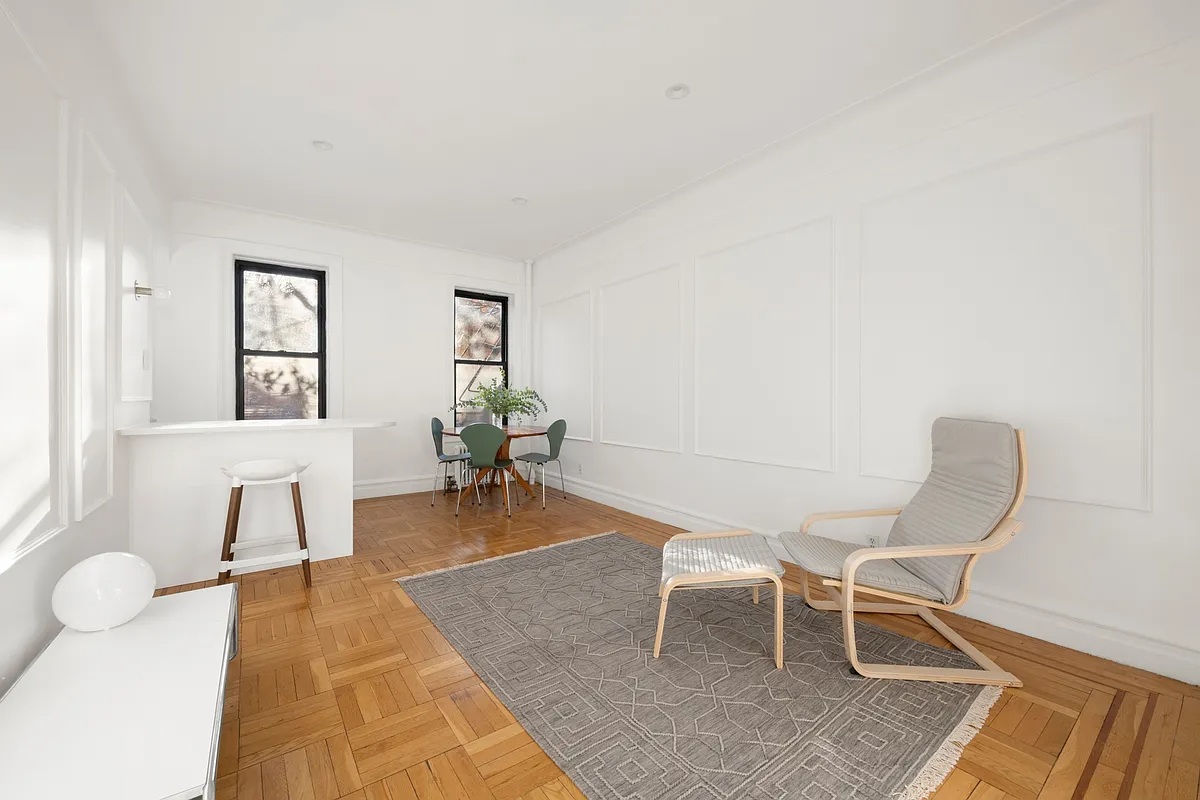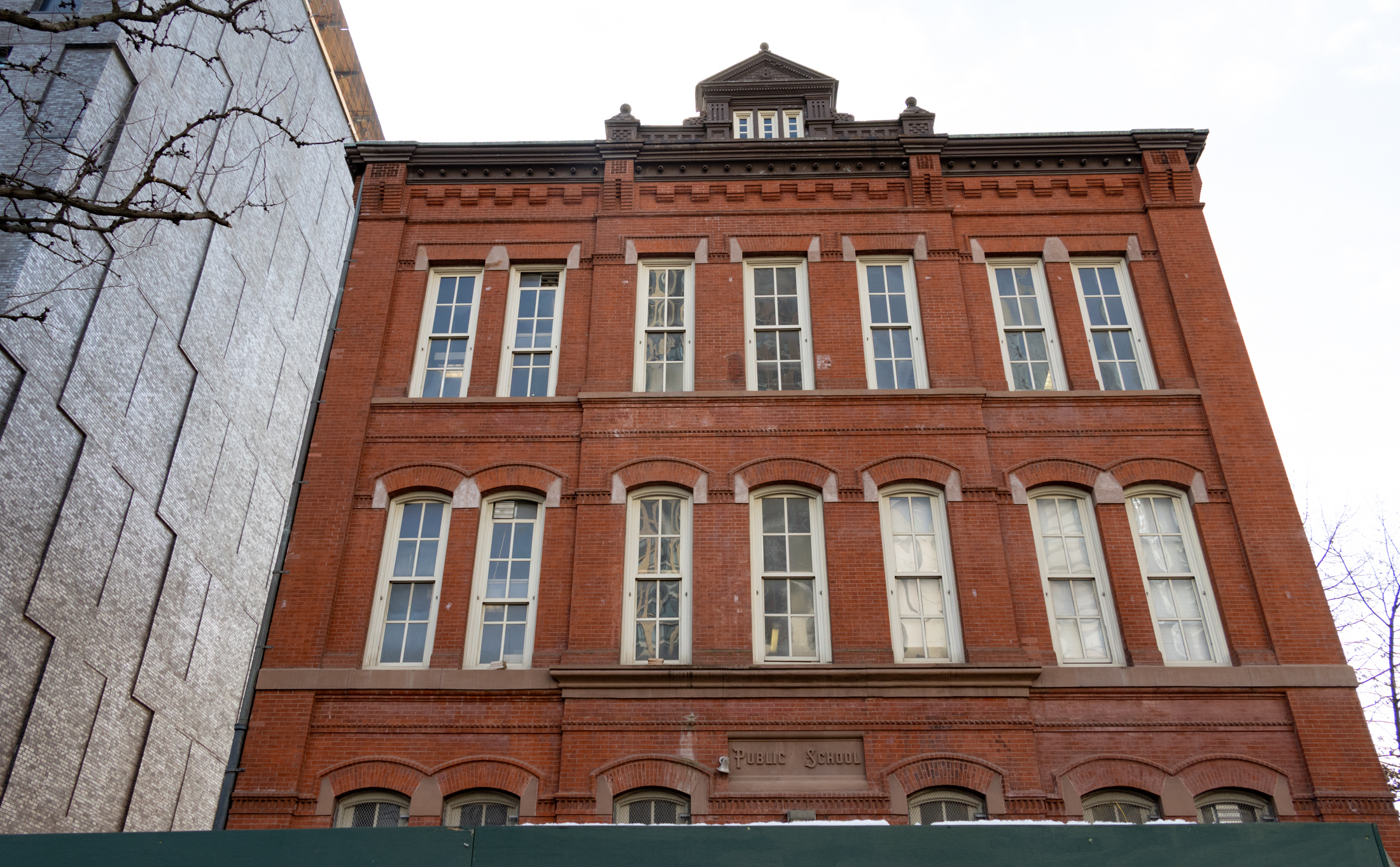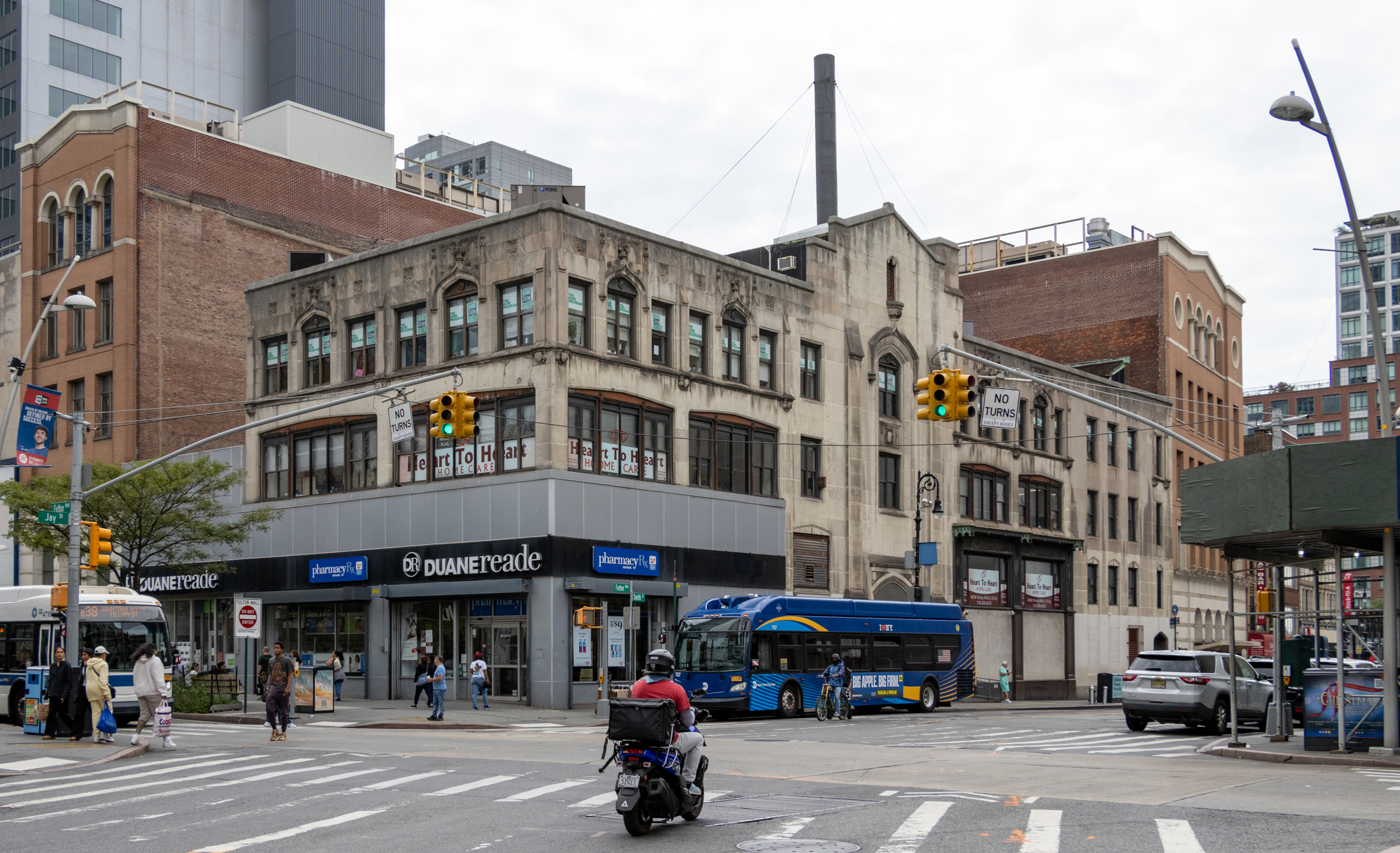Commercial Sales in Brooklyn
PARK SLOPE $5,000,000 910 Union Street (left) GMAP The People’s Cathedral of Brooklyn sold off their 15,791-square-foot building on Union, near Grand Army Plaza, according to public records. The deed names the property’s buyer as Jacob Pinson, the developer behind the Vermeil condo. Last year the DOB disapproved a filing to enlarge the building and…


PARK SLOPE $5,000,000
910 Union Street (left) GMAP
The People’s Cathedral of Brooklyn sold off their 15,791-square-foot building on Union, near Grand Army Plaza, according to public records. The deed names the property’s buyer as Jacob Pinson, the developer behind the Vermeil condo. Last year the DOB disapproved a filing to enlarge the building and make it residential.
BOROUGH PARK $16,700,000
1462 62nd Street (right) GMAP
We don’t know anything about warehouse values in this neck of the woods, but a buyer thought it made sense to shell out a pretty penny for this 123,390-sf property.
Photos from Property Shark.





http://therealdeal.com/newyork/articles/park-slope-condo-project-gets-a-new-developer-with-the-american-development-group-stepping-in
I am one of the developers. Any questions – please ask!
Test
“What, so why did all those dumb traders bid up stock prices again today?”
Google or Wikipedia “Plunge Protection Team”.
What, so why did all those dumb traders bid up stock prices again today?
PC of B is becoming an Apple Store.
This appears to be a legitimate sale, how is Abe Pinson involved with the People’s Cathedral of Brooklyn?
Yet again you list a transfer in ownership among the same organization as a sale. 910 Union didnt sell. It was transfered from Abe to Jacob Pinson (brothers who own companies jointly)
The What, next time can you just cut and paste the link to the story so we can more easily skip over your post? We already know your cutting and pasting skills are top-notch; there’s no need to try to prove it day in and day out.
I guess they didn’t read this.
U.S. Economy: Sentiment Weakens More Than Anticipated (Update1)
By Bob Willis
April 25 (Bloomberg) — U.S. consumer confidence fell more than forecast in April to a 26-year low as record fuel prices and rising unemployment threatened to reduce spending.
The Reuters/University of Michigan sentiment index decreased to 62.6, from 69.5 the previous month. The measure was down from a preliminary estimate of 63.2 issued on April 11.
Consumers are growing increasingly anxious because the economy has lost almost a quarter million jobs so far this year, gasoline is up 17 percent and property values have fallen. Sales of houses and cars have declined as a result, contributing to a slowdown that may bring an end to the six-year expansion.
“Consumers are feeling the pinch, not only from the labor market, but also from prices,” Aaron Smith, an economist at Moody’s Economy.com in West Chester, Pennsylvania, said in a Bloomberg Television interview. “There’s a squeeze on incomes from two sides.”
Economists had forecast the consumer sentiment gauge would fall to 63.2 from 69.5 in March, according to the median of 60 projections in a Bloomberg News survey.
The index of consumer expectations for six months from now, which more closely projects the direction of consumer spending, dropped to 53.3 from 60.1 last month.
Stocks fell, pushing the Dow Jones Industrial Average down 83.94 points, or 0.6 percent, to 12,767.1 at 11:16 a.m. in New York.
Current Conditions
A measure of current conditions, which reflects Americans’ perceptions of their financial situation and whether it’s a good time to make big-ticket purchases like cars, decreased to 77 from 84.2 last month.
Consumers were also more concerned about inflation. Americans thought prices would increase 4.8 percent over the next 12 months, up from a 4.3 percent estimate in March. Longer term, inflation was pegged at 3.2 percent, the highest level since August 2006 and compared with 2.9 percent last month.
The economy lost 80,000 jobs in March, the most in five years, following a 76,000 drop in payrolls in each of the prior two months, according to figures from the Labor Department. The jobless rate rose to 5.1 percent, the highest level in more than two years.
Rising fuel costs have contributed to a drop in auto sales and prompted some shoppers to limit trips to malls. The average price of regular unleaded gasoline rose to a record $3.58 a gallon yesterday, according to data from AAA.
Auto Sales
Cars and light trucks sold at an average 15.2 million annual pace in the first three months of the year, the fewest since the third quarter of 1998. Some 14.9 million autos will be sold this year, the fewest since 1995, Standard & Poor’s forecast this month.
AutoNation Inc., the largest publicly traded U.S. car dealer, yesterday said first-quarter profit fell 35 percent as weak housing markets in states including California hurt demand for new vehicles.
“We expect to continue to see a challenging automotive retail market as long as the current economic difficulties persist,” Chief Executive Officer Michael Jackson said in a statement.
Only one-third of consumers polled by the University of Michigan said they planned to spend the tax-rebate checks that the Treasury Department is poised to send as part of the Bush administration’s economic stimulus plan. The majority of Americans plan to use the money to pay down debt or boost savings, the report said.
Spending Shortfall
Economists surveyed by Bloomberg earlier this month forecast consumer spending will rise at a 0.5 percent pace in the first half of the year, the smallest gain since 1991. The economy is unlikely to grow at all through June, the survey also showed.
Those polled put the odds of the economy entering a recession this year at 70 percent, up from 50 percent in the prior month’s poll.
The biggest housing slump in a generation is leading the downturn. Home prices nationwide have fallen 10 percent from their peak, according to the S&P Case-Shiller home-price index, and many economists are forecasting values will keep dropping. Falling property prices make Americans feel less wealthy and reduce the amount of equity owners can tap for spending.
Rising foreclosures are also lifting stress levels. Foreclosure filings jumped 57 percent and bank repossessions more than doubled in March from a year earlier as rates on adjustable mortgages increased, Irvine, California-based RealtyTrac Inc., a seller of default data, said last week.
To contact the reporter on this story: Bob Willis in Washington at bwillis@bloomberg.net
The What
Someday this war is gonna end….